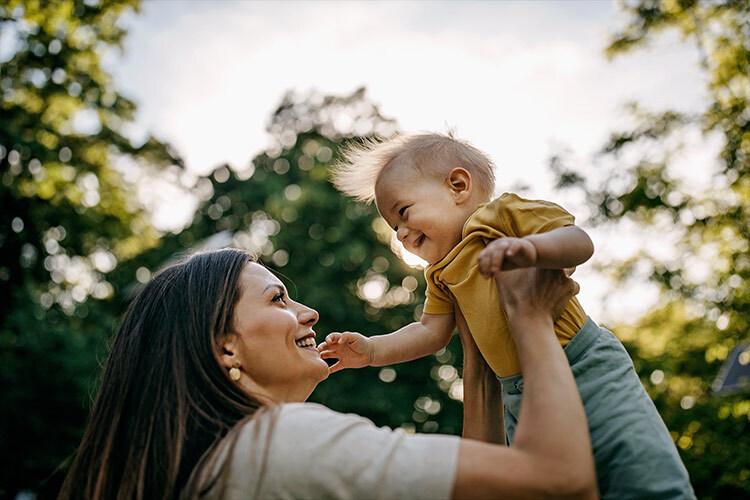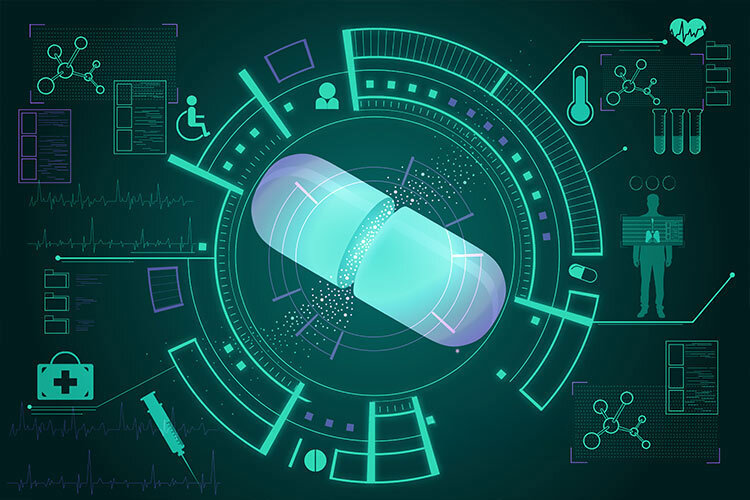Few bonds in human life are as profound and unique as between a mother and her children. This connection begins during pregnancy and continues throughout their lives.
Beyond the beauty of this relationship, its role is fundamental in the development and well-being of offspring, with both short and long-term effects.
“As a baby develops, the bond created with mom has a great influence on how they will explore and relate to life,” says Daniela León, psychiatrist and researcher at the Tec de Monterrey, in an interview with TecScience.
In various studies, science has shown that maternal care affects the physical, cognitive, social, and emotional development of individuals.
This can foster a sense of security and positive self-esteem and contributes to good nutrition, academic performance, emotional regulation, and the development of various skills.
“During pregnancy, the foundations for this connection are established,” says Julieta Rodríguez de Ita, pediatrician and researcher at TecSalud. “Even though the baby hasn’t been born yet, there is an essential biological communication between the fetus and the mother.”
This bond is particularly critical during the first five years of life—known as early childhood—as it lays the groundwork for healthy development.
The mother’s voice, scent, touch, and presence reduce the baby’s stress by activating the parasympathetic nervous system, which controls involuntary functions like digestion.
Biological Basis of the Mother-Child Bond
To promote this bond, engaging in activities like skin-to-skin contact, eye contact, talking or singing to the baby, holding them, rocking them, breastfeeding or feeding them, massaging them, playing with them, or bathing them is important.
“Exclusive breastfeeding for at least the first six months of life is very good for strengthening this connection,” says Rodríguez de Ita.
Behind this bond lies a series of biological factors.
The first is oxytocin, the love hormone, which increases in both the baby and the mother when they have skin-to-skin contact, breastfeed, or establish eye contact.
Additionally, prolactin, the hormone responsible for breast milk production, contributes to breastfeeding, thus promoting this bond.
Furthermore, it has been found that mothers experience a reduction in gray matter volume in areas of the brain, such as the prefrontal cortex, involved in processing social signals. This, it is believed, fosters her ability to understand and respond to her child’s needs.
This is reinforced by the activation of mirror neurons, which fire when a mother interacts with her offspring, allowing her to empathize with their emotions and needs.
Secure Attachment
According to experts, secure attachment is the best way to promote this connection. This occurs when the mother or primary caregiver responds sensitively, carefully, warmly, and consistently to the baby’s needs.
“If I fall or hurt myself, I know my mom will be there,” explains Rodríguez de Ita. This gives children a sense of protection, security, and trust.
Various studies have shown that this affects young children as they grow, allowing them to explore the world confidently and securely.
Furthermore, adults who have secure attachment with their mothers are more likely to be self-sufficient, show empathy, and have positive relationships in the future.
“A person who developed secure attachment will also be able to make better decisions regarding their physical, mental, and sexual health,” says León.
However, for secure attachment and a healthy bond to occur, mothers must be cared for psychologically and emotionally.
“If we have a mom living in an environment of constant stress or violence, who doesn’t eat well or doesn’t have a support network, all of this will impact the baby’s development,” says Fabiola Castorena, professor-researcher at the School of Medicine and Health Sciences at the Tec de Monterrey.
When the Environment Isn’t Ideal for Motherhood
Although it’s desirable for mothers to have a healthy connection with their children, some don’t live in the right conditions to establish it.
“There are studies that have shown that if the mom had adverse experiences in her childhood that she hasn’t been able to heal, this impacts the mental health of her children,” says Rodríguez de Ita.
Domestic violence, social violence, chronic stress, lack of a support system, pollution, lack of access to healthy food, and lack of support for working mothers are some of the factors that can negatively impact motherhood.
“Starting from pregnancy, if the mom experiences violence or toxic stress, biochemical, epigenetic, and physiological changes occur both in her and the baby,” explains Castorena.
All of this can lead to mothers adopting caregiving patterns that are not ideal for them and their babies.
“Anxious attachment occurs when the mother or primary caregiver responds to the baby’s needs on some occasions and not on others,” explains León.
Disorganized attachment is established when none of the needs are met, and the maternal or paternal figure is a source of adversity. This is the most problematic and has been associated with diagnoses of mental disorders such as bipolar disorder or schizophrenia.
A recent analysis conducted by the researchers found that 68% of Mexican mothers and fathers use physical or psychological violence to discipline their children.
“It’s very cultural; we say that a timely spanking or shouting is better,” says Rodríguez de Ita.
But this isn’t the case; violent punishments have short and long-term effects on individuals, such as low self-esteem, feelings of loneliness, mental illnesses, an inability to make decisions, or the generation of more violence.
Seeking Help and Breaking Patterns of Adversity
Fortunately, more information is available to correct parenting styles and foster a peaceful environment in motherhood.
There is also an increasing awareness that we as a society need to work to create a safe environment for mothers to exercise their motherhood.
Based on their experience, Rodríguez de Ita and Castorena encourage mothers to seek help when needed.
Often, parenting styles follow an intergenerational pattern: If ancestors used violence to discipline, their descendants will likely do the same.
“As a mom, I can question myself and seek help to make my parenting more successful,” says Rodríguez de Ita. “What you experienced, how you were raised, doesn’t necessarily have to be the pattern you follow.”
Benevolent Experiences and Practical Advice
There are also benevolent experiences that counteract the adverse ones and can protect a human being from trauma and distress.
These can be a loving relative, having good friends, playing sports, finding an activity that we are passionate about, listening to music, having spaces to play, laugh, and learn new things.
“Adversity is part of life, but as mothers and fathers, there is a great possibility of promoting these positive experiences,” says León.
Recently, an interdisciplinary group, made up of graduate students and professors from the Developmental Biology and Well-being in Childhood research group, created a manual for parents and primary caregivers that gives practical advice based on scientific evidence for them.
With this, they aim to promote positive parenting that fosters the development of healthy and fulfilled human beings.
This advice can be useful to anyone who is the primary caregiver of a child, whether a grandparent, aunt or uncle, single father, or single mother.
“Adoptive mothers can also form this secure, unique, and special bond,” says Rodríguez de Ita.
The most important thing for the researchers is that this information is communicated empathetically without seeking to shame or stigmatize mothers or caregivers.
Ultimately, humans are constantly learning, and nobody gets everything right.
“There’s no such thing as a perfect mom; every day, you learn and improve,” says Rodríguez de Ita.
Did you find this story interesting? Do you want to publish it? Contact our content editor to learn more marianaleonm@tec.mx


















